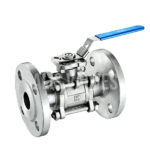In the ever-evolving landscape of logistics and transportation, the role of technology in modern freight dispatch services cannot be overstated. As businesses strive for greater efficiency, enhanced communication, and cost-effective solutions, technology has emerged as a critical enabler in the freight dispatch sector. This article explores how technology transforms freight dispatch, highlighting essential tools, innovations, and trends that drive the industry forward.
Understanding Freight Dispatch Services
Freight dispatch services serve as the backbone of logistics, ensuring the seamless movement of goods from suppliers to consumers. Dispatchers coordinate shipments, manage routes, and communicate with drivers and clients. However, traditional methods often led to inefficiencies, delays, and miscommunications. The integration of advanced technology has revolutionized these processes, making them more efficient and reliable.
The Impact of Technology on Freight Dispatch
1. Enhanced Communication Tools
Effective communication is vital in freight dispatch. Technology has introduced real-time communication platforms, enabling dispatchers to stay connected with drivers and clients. These tools reduce response times and ensure that all parties are informed about shipment statuses, thus enhancing overall operational efficiency.
- Mobile Applications: Many companies utilize mobile apps that allow drivers to receive updates, report issues, and access route information instantly.
- Instant Messaging: Platforms like WhatsApp or Slack enable quick communication, fostering collaboration and faster decision-making.
2. Advanced Tracking and Monitoring Systems
The implementation of GPS tracking and fleet management software has significantly improved the visibility of freight movements.
- Real-Time Tracking: Customers can track their shipments in real-time, providing them with transparency and peace of mind. This level of visibility enhances customer satisfaction and trust.
- Route Optimization: Advanced algorithms help dispatchers determine the most efficient routes, reducing fuel consumption and improving delivery times.
3. Automation of Dispatch Processes
Automation in freight dispatch is gaining traction, reducing manual workloads and minimizing errors.
- Automated Load Matching: Technology allows for the automated matching of available loads with suitable carriers, streamlining the booking process. This ensures optimal utilization of resources.
- Data Entry Automation: Automation reduces the chances of human error in data entry, making processes smoother and more reliable.
4. Use of Artificial Intelligence
Artificial Intelligence (AI) is transforming freight dispatch services by enabling predictive analytics and smarter decision-making.
- Predictive Analytics: AI tools analyze historical data to forecast demand and potential disruptions, allowing dispatchers to prepare accordingly.
- Smart Routing: AI can analyze traffic patterns and weather conditions, providing real-time recommendations for alternative routes.
Emerging Technologies Shaping Freight Dispatch
1. Internet of Things (IoT)
The IoT has introduced a network of interconnected devices that gather and exchange data, enhancing the visibility of freight operations.
- Smart Sensors: These devices monitor the condition of goods during transit, providing alerts for temperature changes, humidity levels, and other critical factors that could affect shipment quality.
- Fleet Monitoring: IoT enables real-time monitoring of vehicle health, reducing maintenance costs and preventing breakdowns.
2. Blockchain Technology
Blockchain technology is becoming increasingly relevant in freight dispatch, offering enhanced security and transparency.
- Secure Transactions: Blockchain provides a secure method for recording transactions, ensuring all parties have access to accurate and immutable data.
- Smart Contracts: These self-executing contracts facilitate automated processes, reducing the need for intermediaries and minimizing disputes.
The Benefits of Technological Integration in Freight Dispatch
1. Increased Efficiency
By embracing technology, freight dispatch services can achieve higher levels of efficiency. Automated systems reduce manual tasks, allowing dispatchers to focus on strategic decision-making rather than administrative duties.
2. Cost Savings
The use of technology in freight dispatch leads to significant cost savings. Route optimization and efficient load matching reduce fuel costs, while predictive analytics minimize the risk of delays and unforeseen expenses.
3. Improved Customer Satisfaction
Enhanced communication, real-time tracking, and reliable delivery schedules contribute to improved customer satisfaction. Businesses that leverage technology in their freight dispatch operations are better positioned to meet customer expectations and build long-term relationships.
4. Enhanced Safety and Compliance
Technology enhances safety protocols in freight dispatch. Real-time monitoring and data analytics help identify potential safety hazards, while automated reporting ensures compliance with regulations.
Challenges in Implementing Technology in Freight Dispatch
Despite the numerous benefits, challenges exist in adopting technology within freight dispatch services.
1. High Initial Investment
The upfront costs associated with implementing advanced technology can be significant. Companies must weigh these costs against the long-term benefits of increased efficiency and reduced operational costs.
2. Resistance to Change
Employees accustomed to traditional methods may resist transitioning to new technologies. Effective training and change management strategies are essential to ensure smooth adoption.
3. Data Security Concerns
As technology becomes more integrated, concerns about data security and privacy also rise. Companies must invest in robust cybersecurity measures to protect sensitive information.
Conclusion
The role of technology in modern freight dispatch services is pivotal in enhancing efficiency, communication, and customer satisfaction. By leveraging tools such as real-time tracking, AI, and IoT, businesses can optimize their operations and remain competitive in a rapidly changing market. As the industry continues to evolve, embracing technology will be essential for success in freight dispatch.



